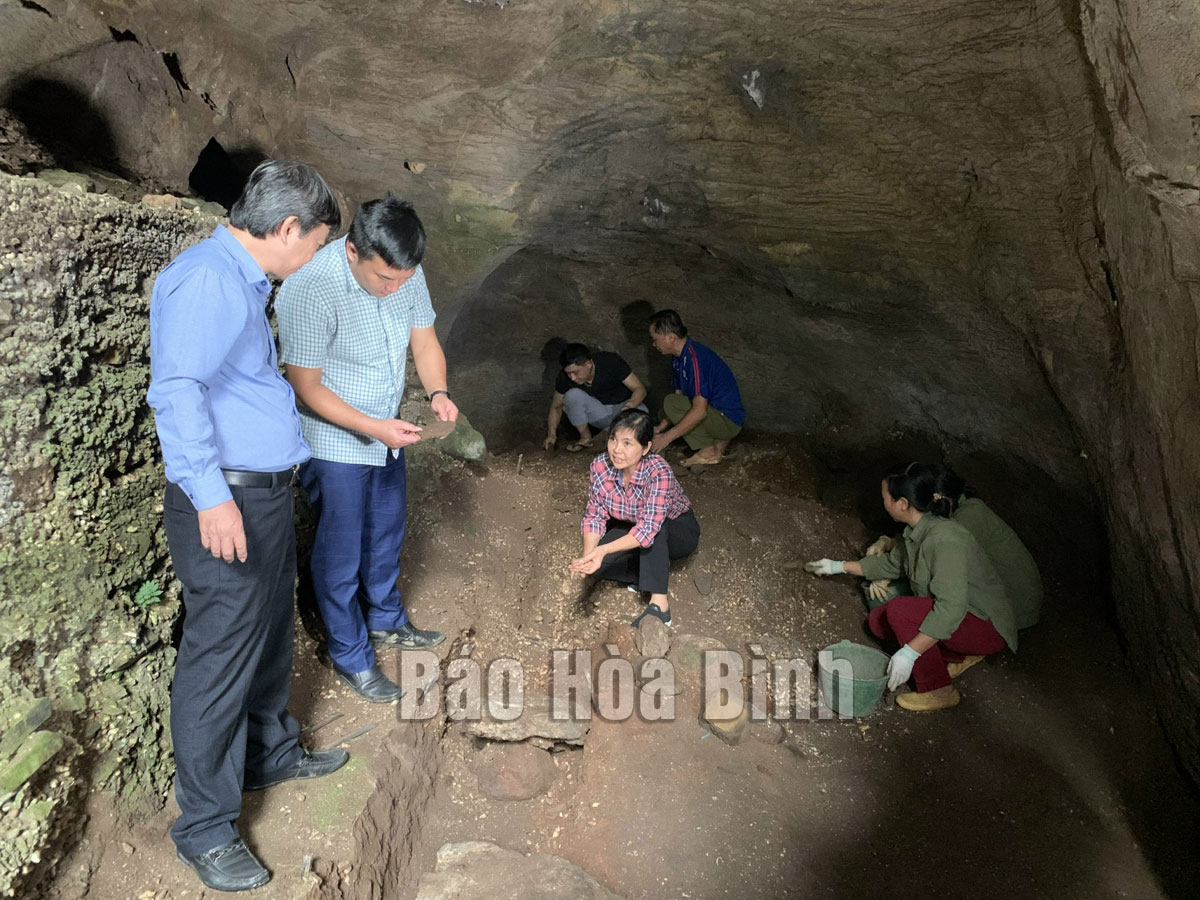(HBO) - Hoa Binh province is working to mark 90 years since the recognition and the study of the Hoa Bình Civilisation. This is a major cultural event aimed at popularising and honouring the special archaeological values of a renowned Stone-Age civilisation in the world.
In a recent interview granted to Hoa Binh Newspaper, Director
of the provincial Department of Culture, Sport and Tourism Bui Thi Niem, who is
also standing deputy head of the organising board of the workshop marking the
occasion, said since 1932, when this civilisation was recognised by
international scientists, nearly 200 relic sites have been discovered in many
Southeast Asian countries, but Vietnam is still home to the biggest number and
most diversity of such sites.
Hoa Binh province accommodates the biggest
number and oldest of those sites. In addition, as local relic sites also
feature the most typical characteristics of the Hoa Binh Civilisation,
international scientists decided to name this civilisation after the province,
she went on.
After almost a century since the recognition and
of the study, the Hoa Binh Civilisation remains a unique prehistoric
civilisation that is greatly attractive to many generations of archaeologists
in particular and those working in social sciences and humanities in general.
Amid scientific development at present, the study of the Hoa Binh Civilisation
promises to reveal many mysteries of this famous ancient civilisation, Niem
noted.
To mark the 90th anniversary of the civilisation
recognition, a workshop and fringe activities will be held to introduce and
honour the special archaeological values of the renowned Stone-Age
civilisation, as well as contributions by French archaeologist Madeleine
Colani, who discovered and gave the civilisation its name, thereby helping
inspire pride among ethnic groups in the province - considered the centre of
the Hoa Binh Civilisation - and educate the young on traditions.
Director Niem said this workshop will be
organised on November 23 under the chair of the provincial People's Committee.
Other organisers include the provincial Department of Culture, Sports and
Tourism, the provincial Party Committee's board for information and education,
the Vietnam Institute of Archaeology, the provincial Association of Historical
Science, and the Centre for Prehistoric Southeast Asian Studies.
The Department of Culture, Sports and Tourism
proposed the provincial People's Committee set up the workshop organising board
and assign tasks to members. Earlier, it had coordinated with the Centre for
Prehistoric Southeast Asian Studies to examine and research some archaeological
sites in Lac Son district.
Departments, sectors, relevant agencies, and
localities have finished preparations while communications about the event have
also been stepped up to help secure success for the workshop, according to the
official./.



